Alagi Yorro Jallow
They say that it takes a village to raise a child. But to raise a dictator and groom him for more than two decades in national leadership? That takes a whole nation. It takes a whole nation to remember, but also a whole nation to forget. The struggle over memory is far from over. We continue to decide what to remember and what to forget. But we must remember that what constitutes our national collective responsibility reveals who and what we are as a nation. Let the dead bury the dead, and the living move on with life. As Dwight D. Eisenhower said: “The history of free men is never written by chance, but by choice – their choice.” Those meant to uphold the values of life and liberty cannot remain silent over atrocity and injustice. We have become a nation of lambs led to the slaughter but must utter no word, silence, under Yahya Jammeh for 22 years. We were cowards, hypocrites and wronged because our ability to tolerate barbarity and tyranny was stretched to its limits.
“He who doesn’t know where he came from doesn’t know where is going,” says an African proverb. The Gambian intellectual community are lost; they don’t know where they are going. I shook my head when I read “It’s a patriotic duty to serve your country.” Serving a tyrant. It seems they are way behind the curve, late to the struggle for democracy and good governance in the Gambia and are only playing “catch-up” with proposed conferences, “belly politics” and the lure for ministerial and diplomatic positions. What is strange in the Gambia is those who have usurped the role of identifying themselves as intellectuals negotiating for dominance in the public space. The nature and role of intellectuals include searching for the truth, interrogating the meaning and knowing the implications of both public conduct and policy decisions.
Afflicted with “intellectual astigmatism,” our intellectuals cannot see with eagle-eyed clarity the injustices perpetrated against the oppressed by the dictator. But they are hopelessly blind to the equally heinous injustices committed by the dictator against their own people. Too many of them sold off their integrity, principles and conscience to serve the dictates of barbarous Yahya Jammeh. He seemed to always find intellectuals and sycophants to serve at his beck and call.
Some of them even preferred military to civilian rule.
When Yahya shamelessly pretended to return the country to civilian rule, religious leaders,Yai Compins, Youth leaders, community leaders and intellectuals began to point to the fact that military rule was the preferred option since civilians had not learned enough lessons to be entrusted with the governance of the country. Those people are called pseudo- intellectuals, individuals who take on the guise of the intellectual to promote embedded political tribalism.
Our faith in our nation is badly shaken.
Our faith in the sincerity of the Gambian people to protect our diversity in a secular nation has been called to question over and over. Our optimism in our constitutional republic is like the proverbial frog boiled gradually to death in a pot of warm water. The willingness of the people to obey unjust laws exposes them. Their ability to perpetuate the mass murder of the Gambian people, burying them in unmarked graves or feeding their carcasses to the crocodiles, speaks volumes of reckless brutality.
Every citizen at every level should have spoken and denounced the illegality of a coup and the continued suppression of our human dignity and humanity to reassure the Gambia that is worthy of our sweat, blood and sacrifice. Every Gambian should have broken the long silence and prolonged spilling of innocent blood under Yahya Jammeh in the name of “solders with a difference” that came with a heavy price to our country. Our country is no more sacred that the blood of our children.
The systematic humiliation, enslavement, subjugation and complete annihilation of a “lesser people” to allow for the forced acquisition of our land for whatever purposes – religious and tribal dominance and conquest – should be halted. Most Gambians remain silenced and continue to enable Yahya Jammeh in his thievery of our resources and killing of the people with impunity. Most Gambians, especially the police, the military and educated civilians who covertly sold their souls to the dictator, justified serving the tyrant in exchange of economic development toward civil liberty. Civilian intellectuals who commissioned, armed and appointed state ministers are just like the so-called Green Boys by doing these dirty jobs for the dictator; they must be brought to justice.
Those silenced when Koro Ceesay and journalist Deyad Hydara were killed as well as during the arson attack on the Independent newspaper, the torching of Radio One FM and the closure of Citizen FM radio are today the very social media fame whores who seek attention just for attention’s sake. They are those who flood our Facebook feeds just to feed their ego. They post, repost, share, reshare and comment because there is a need to, now more than ever. How can we – you – be silent when the voices of malicious misinformation and populist historical revisionism have grown louder each passing day over 22 years.
“Silence is golden” is a proverbial saying, often used in circumstances where it is thought that saying nothing is preferable to speaking. Who is fooling who? I am usually defiantly optimistic when I think of the Gambia, but even that has not been spared “change.” When Yahya Jammeh detained the opposition leaders and held them incommunicado at the notorious Mile Two Central Prisons, seizing their liberty, we all remained silenced. Yahya continued to kill politicians and, despite several court orders, expose our collective weakness of silence and complicity.
The progressive extrajudicial extermination of the Gambia exposes our silence and complicity. The willingness of our people to accept and condone injustice is not the attribute of a great nation and cannot be expected to last forever. Self-defense and self-determination are fundamental and inalienable human rights and legitimate options which the Gambian people and indeed all citizens should have pushed to consider.
Counsel and bitter truth are worth their weight in gold. So, those who love this country, like the Gambian people, should not have remained silent for 22 years. When those sworn to defend us are perceived to be complicit with murderers, they keep silent or rein in our rage forever, especially those in the police, in the military, the youth and our intellectuals, who are prostitutes of the highest order.
Many “untainted” political leaders and other journalists who were outspoken and challenged the dictator are detribalized, personable and humane. They have never remained silent; they broke their silence and joined great Gambians such as Halipha Sallah and his party, Ousainou Darboe and his party, Hamat Bah and Omar Amadou Jallow – those military people who resisted on November 11, 1994 – and some members of the private press to speak for restraint and challenge the dictator. They paid a heavy price but were never silent to the horror show of dictatorship.
The assumption that all military coups fit within this traditional, antidemocratic model pervades the legal literature of illegal and treasonable. According to the prevailing view, a democratic military coup is an oxymoron. For example, Richard Albert’s recent work on democratic revolutions states that “by definition, a coup cannot be democratic.” Military coups, according to Professor Albert, constitute “an affront to the democratic ideals of stability, consent, and legitimacy.” Andrew Janos likewise, has argued that a coup d’état “is the reversal hood’s or anybody else of the process of revolution.”
Other examples of this academic view abound. Federal law in the United States reflects the same disdain for military coups by prohibiting, with certain exceptions, any financial assistance “to the government of any country whose duly elected head of government is deposed by military coup or decree.” The European Union made a similar commitment in 1991. Opposition political parties and some independent journalists never recognized the July 22 Revolution, but a section of civil society associations and groups all joined with their families and supported the bandwagon of the July 22 Revolution. Those supporters are the very people now distancing themselves from the dictator’s movement.
According to the proverbial saying, “you cannot divorce your husband and reclaim your virginity.” The July 22 Revolution has been illegal since day one. Why has it taken that long for the journalist, the police officer, the military officer and the fly-by-night activists who enabled the dictator and worked with the dictator to not question the illegality of the July 22 Revolution. Yet, our drama kings and queens of social media – those who lose their manhood and fertility for two decades – now become an apostle of democracy and constitutional governance. Therefore, it’s collectively profitable to stand up and speak out for a good cause.
Silence may be golden, but not in the face of oppression and tyranny. According to Professor Wole Soyinka, “The man dies in all who keep silent in the face of tyranny.” Bishop Desmond Tutu also accents that, “If you are neutral in situations of injustice, you have chosen the side of the oppressor.


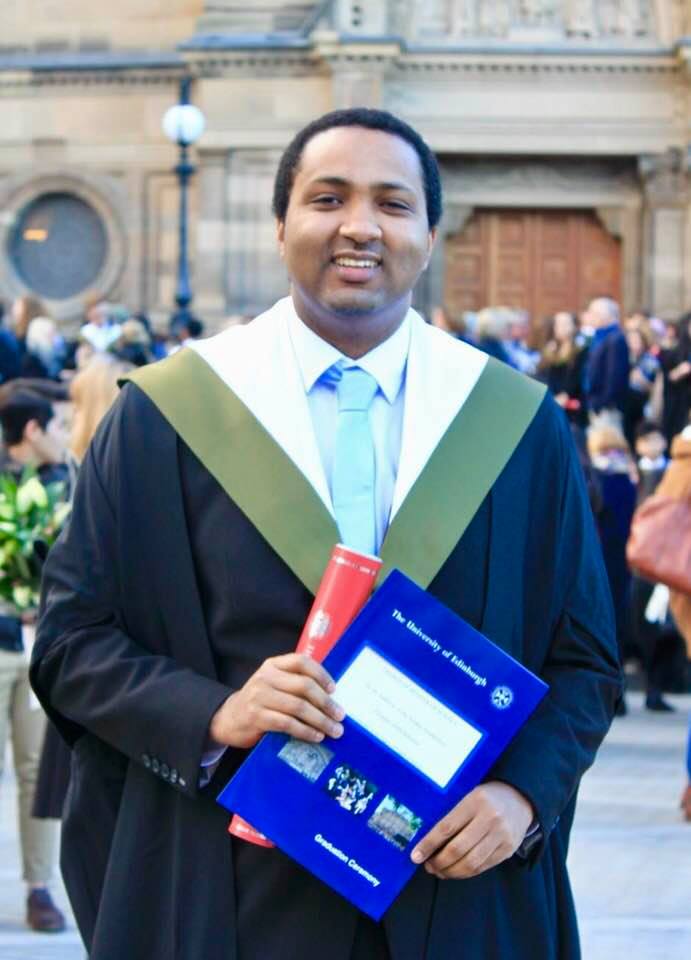
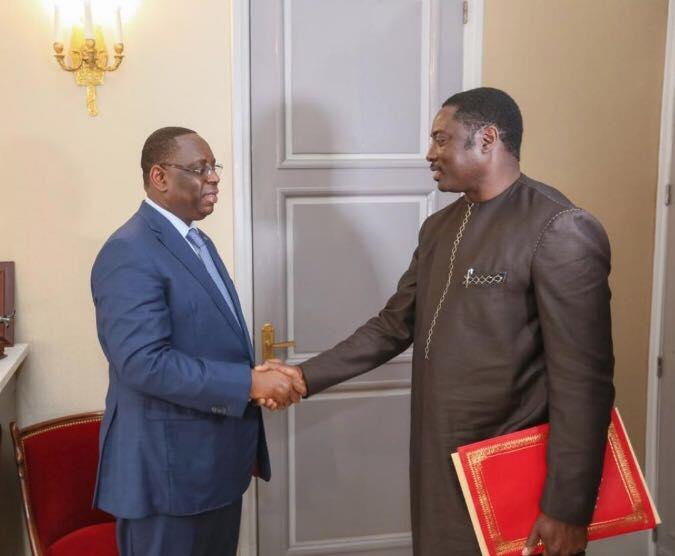
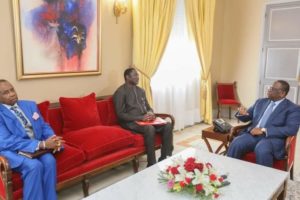
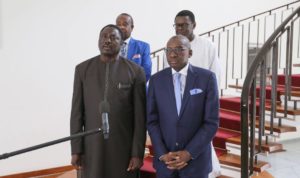
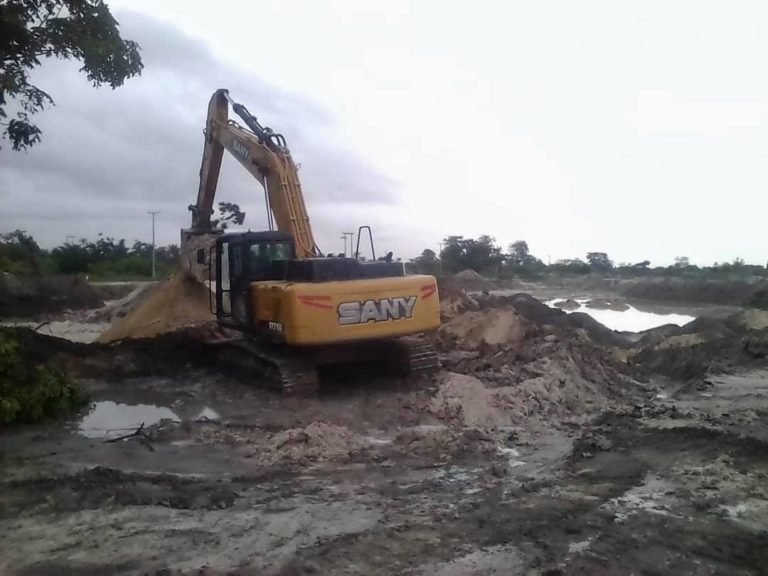
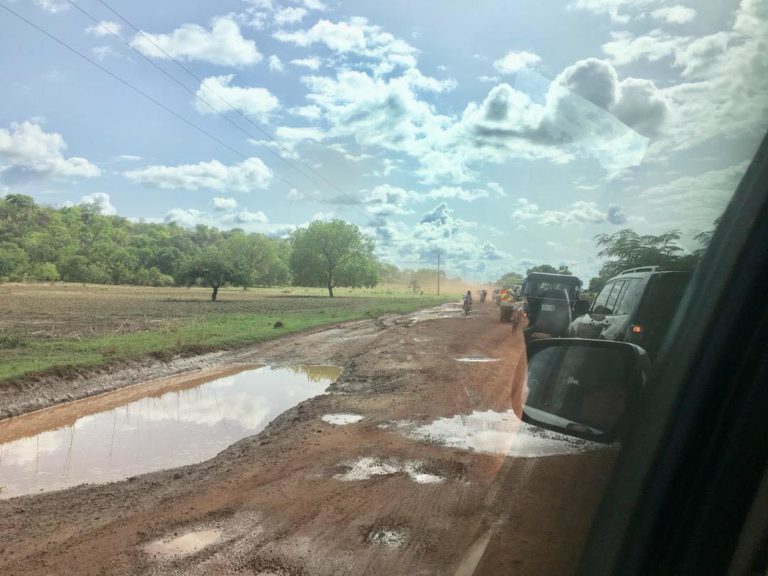
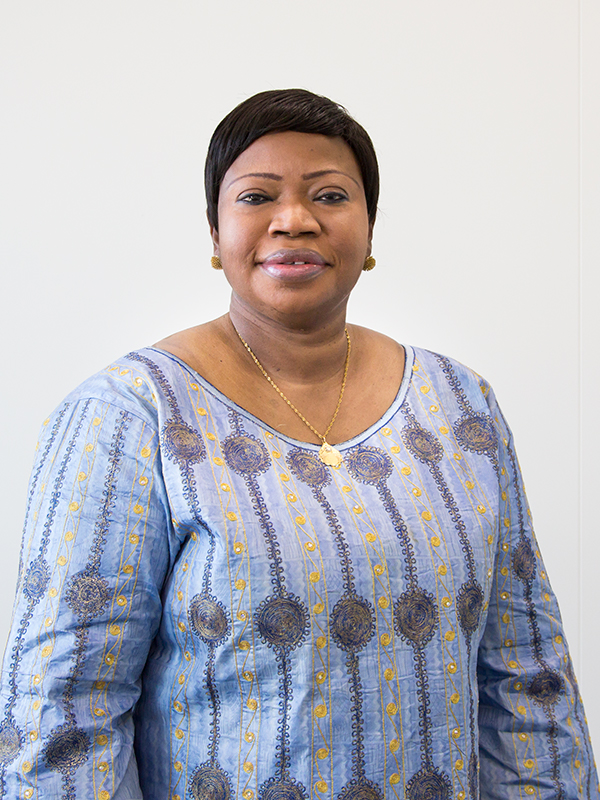
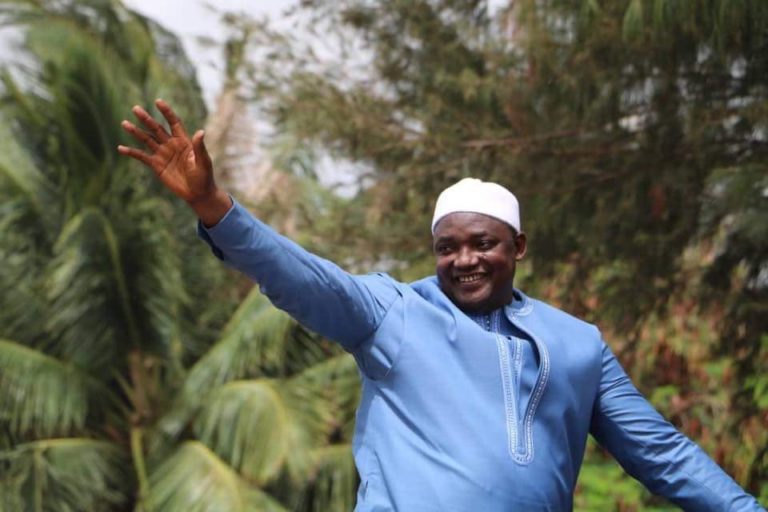
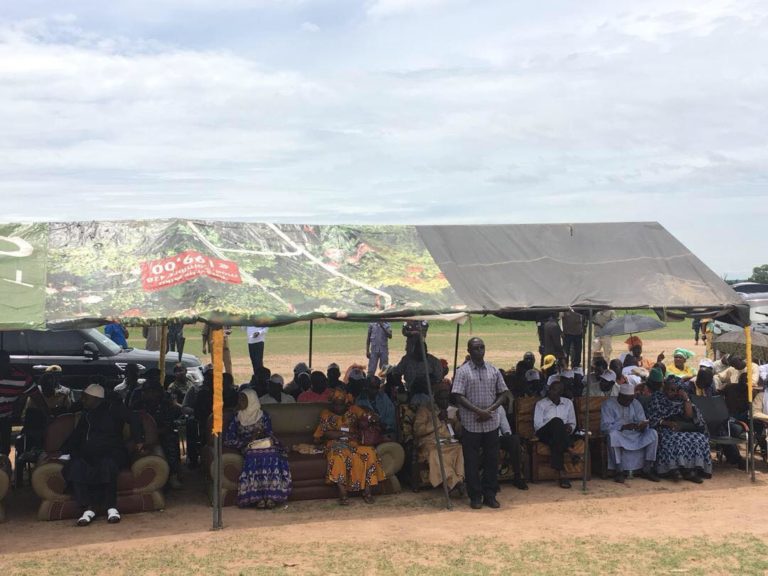
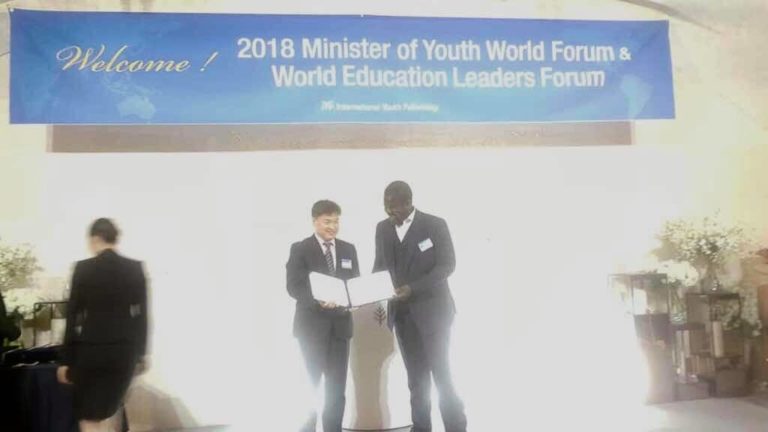
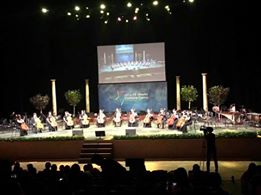
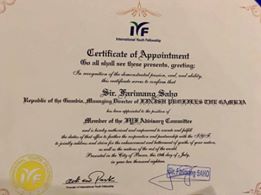
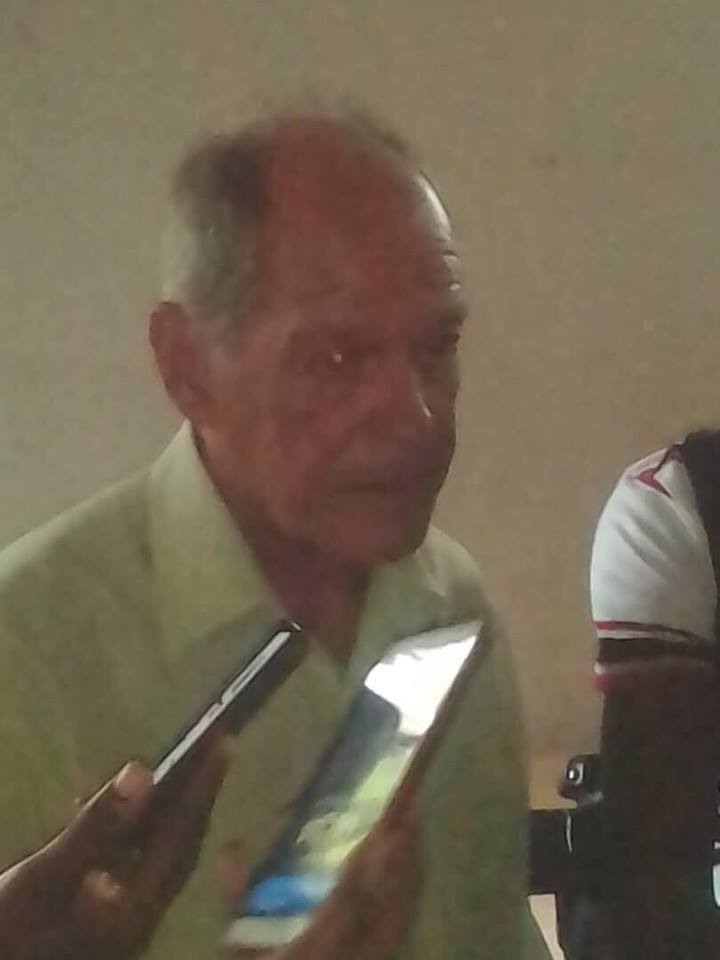
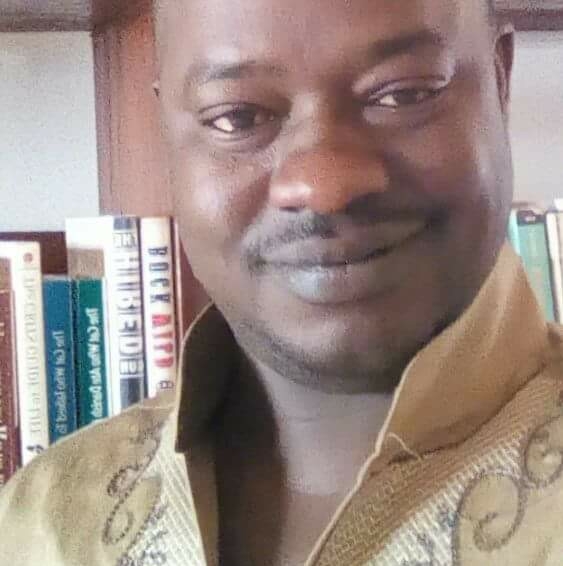
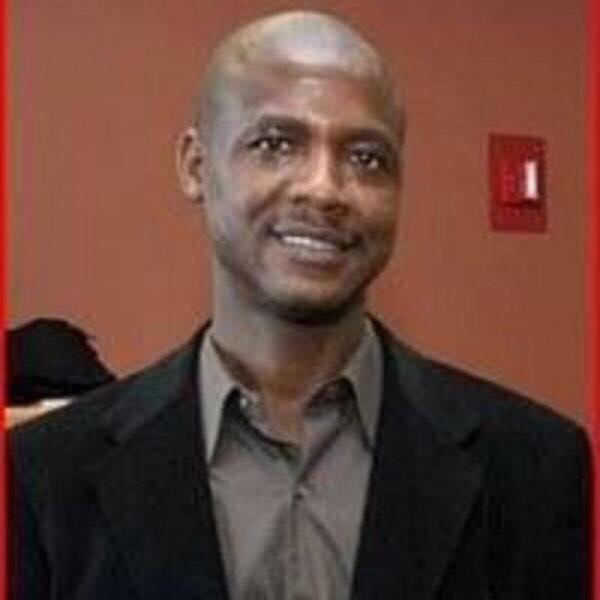
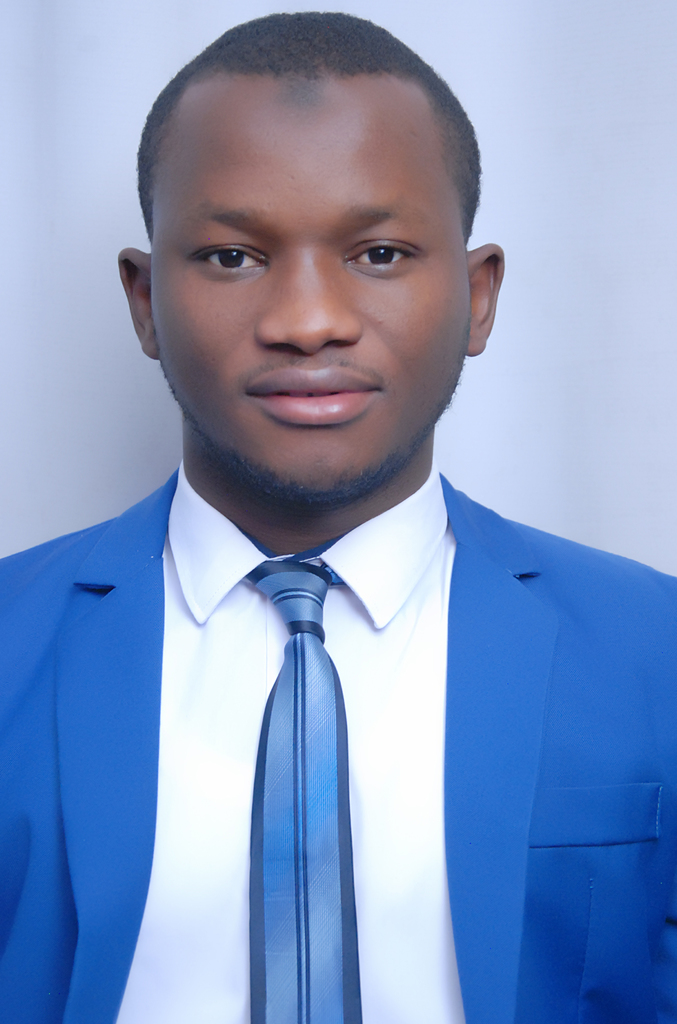
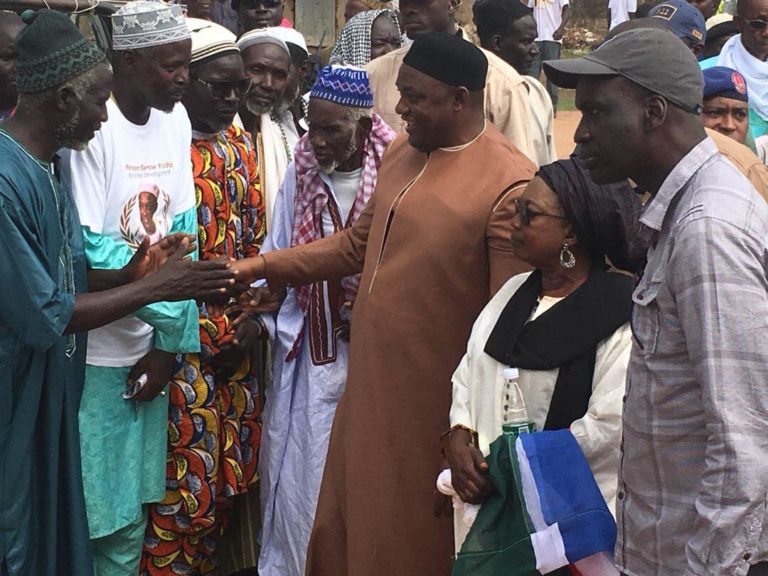
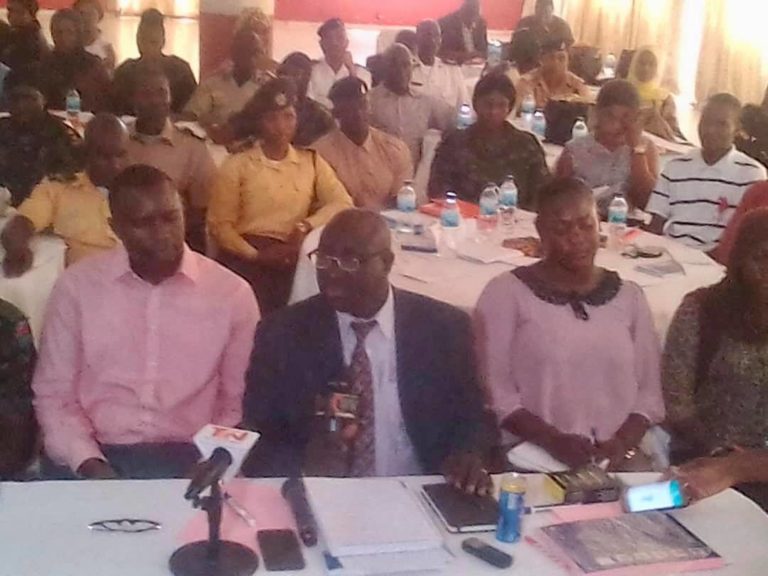
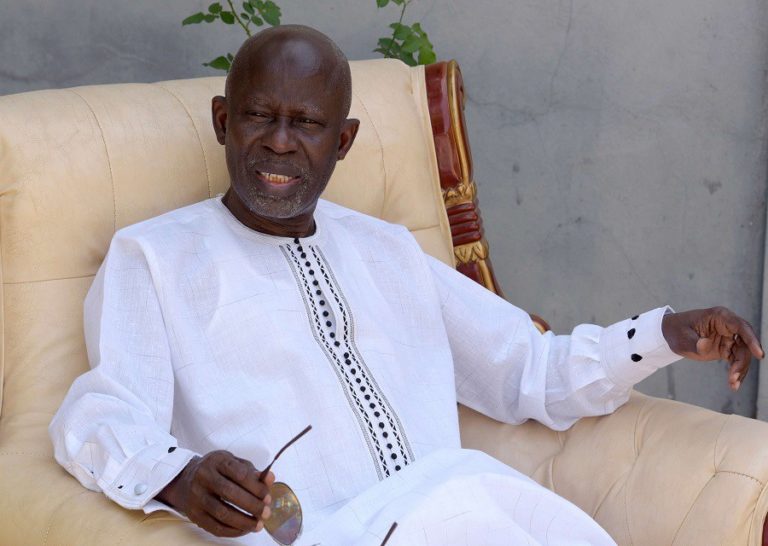
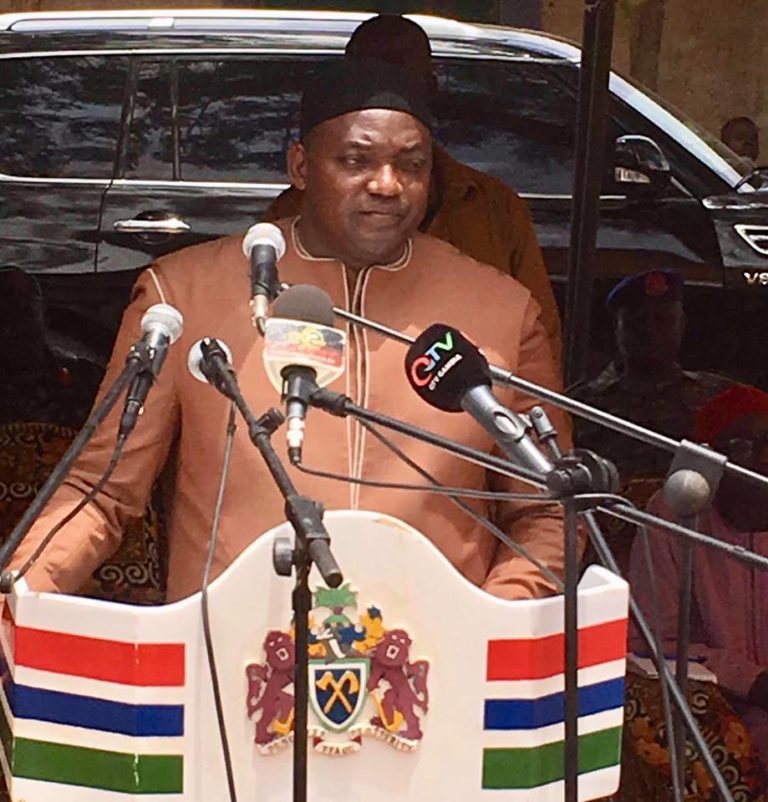
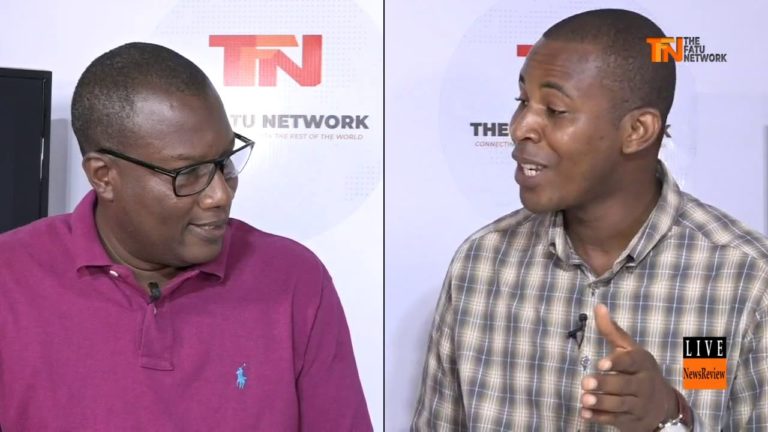
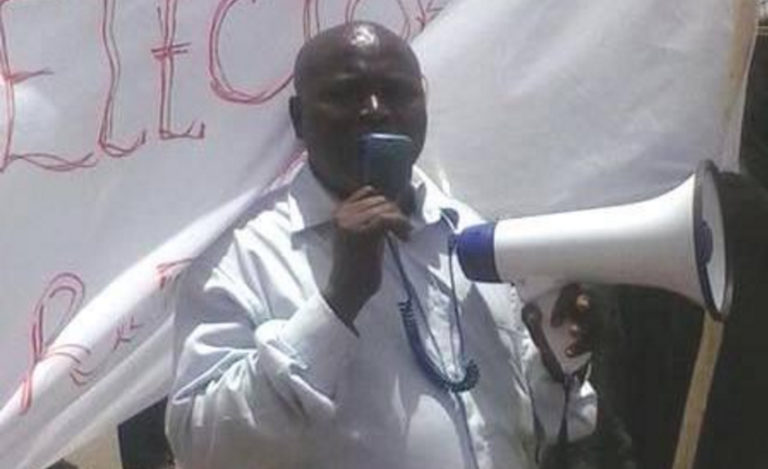
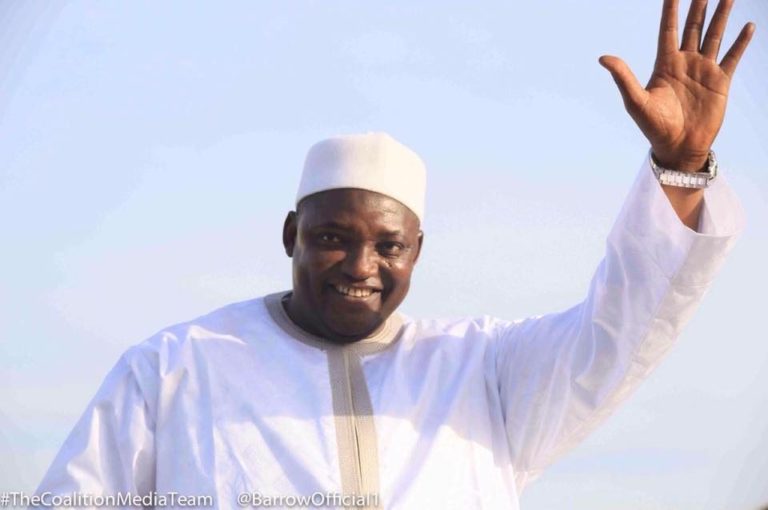
Mega-Projects: Mr. President Address Everyday Woes:
Alagi Yorro Jallow
“Build a dam to take away water AWAY from 40 million people. Build a dam to pretend to BRING water to 40 million people. Who are these gods that govern us? Is there no limit to their powers?” – Arundhati Roy (The Cost of Living).
Fatoumatta: How and when did President Adama Barrow succeeded to convince members of the National Assembly approved a multibillion dollar mega projects bridge construction between Banjul and Barra? President Adama Barrow cannot be asking donors for money and fail to sensitize electorates but forgetting that citizens are getting to know faster than his political empowerment positioning can help us. So, President Barrow should be creating linkages and spaces more than coming with already-made agendas and saying that we are sensitized.
Fatoumatta: President Barrow and government institutions need adjust to current times. The days you could make decisions and not expect a public discussion, or not expect the news to spread, are long gone. People need to adjust to these new realities. Our constitution entrenches public participation in government policy decisions.
Fatoumatta: You can’t even build a $1.5 billion bridge – I’m still scratching my head as to how a bridge costs $1.5 billion – Fatoumatta: You have no business promising the marble-mouthed developments from the National Development Plan blueprint 2018-2021. An incumbent government has no business promising new things when they can’t even show you HOW and WHERE they delivered what they promised in the last two years. Mr. President you promised before – ‘that no Gambian will ever die of hunger or famine again’. Mr. President, you should have added – if we can’t get you bread, we’ll give you cake.
Fatoumatta: If you can’t even afford 24 hours electricity and water supply that costs 1.2 billion, how many more dodgy projects are out there waiting to collapse? Even if you must put a monetary value to navigation of the terrain during construction – building of bridges, environmental considerations, etc. – there’s still enough left for a proper heist. You know what they say, a billion here, a billion there and soon you start talking about real money.
Fatoumatta: At the heart of the persistence of mass poverty in the country, despite low rates of economic growth, there is the misconception of the political elite that development is synonymous with western lifestyles and physical infrastructure, as opposed to solving the everyday problems that improve the lives of ordinary people — for example, building 60 mosques and mega-projects instead of sewers and shallow wells, unless and until the big stink wafts into the National Assembly.
Fatoumatta: The reality is that as Gambians we’ve been conditioned in certain ways. We’ve accepted mediocrity and incompetence from constitutional duty bearers as a way of life. We believe that we are not capable of finding solutions ourselves and we need interventions from foreign powers and benevolent people to survive in life. We prefer to entertain thieves and call them heroes and entrepreneurs. We don’t want to fight for what is rightfully our birth right. We want to get into quick fixes and a thuggish deal culture designed for that “get rich quick” mentality. It’s a man eat dog society where we don’t give a damn or respect the value of community wealth and health and the conventional wisdom that if the community around you is prospering, then it works out that you will also prosper.
Fatoumatta: Gambians want saviors to come from abroad but refuse to take individual and collective responsibility to shape our well-being as a community. We need a paradigm shift in how we think about development and our individual and collective roles in them. If I was to give advice to Adama Barrow, I’d tell him to take the time to understand what the people he’s trying to help need, what is important for them. Don’t assume you know and laud it over people as if you were the god of development and have all the answers. Development is not a linear process that has a theoretical answer that can be imposed on a community. There are complex multi-dimensional reasons why we’re in the situation we’re in, and proclamations before the world media of what you will and will not do are unhelpful.
Fatoumatta: President Barrow’s electoral victory horse power will for sure bring the millions of dollars and euros from around the world, but those millions will never facilitate sustainable change if you don’t’ engage and involve the stakeholders you purport to support. The most important thing you can do in that process is to stop believing you have all the answers even before talking to the electorates.
Fatoumatta: The misguided self-righteousness of development in deciding our destiny to build mega projects was and still is palpable. You get to experience the sheer level of the ignorance when you’re in executive management and you realize the development industry has only one purpose. To perpetuate a self-fulfilling prophecy to guarantee that poverty will continue to exist. People in the industry have mortgages to pay, kids to take to private school, lifestyles to maintain, fat SUVs to drive. There is an arrogance when you consider that there is a white privileged elite enabled by local wanna be yes people believing that 1.9 million people in the Gambia cannot figure out what’s good for them and it is only they who can save the Gambia.
Fatoumatta: Government and other institutional heads should know that blasting public voices by calling them “activists” doesn’t work anymore. If you are a leader in an institution and you don’t anticipate being held by the public to account for your decisions, or if you expect no one to publicize what you’re doing, you should not be in that position in the first place. Telling people that they shouldn’t ask questions or report what is happening belongs to the Yahya’s era.
Fatoumatta: Social media and internet makes news travel fast, so people can question decisions in real time before they are implemented. Information is also easily available, and people can google to research the strength of your decisions, and they can find out where else in the world similar decisions have worked or not worked. At independence, the number of educated people within institutions was more than the number of educated people outside them. So, you could decide, and the public doesn’t question them. But now, the educated citizens outnumber the educated employees. So, the days when your decisions were not subjected to informed scrutiny are long gone.